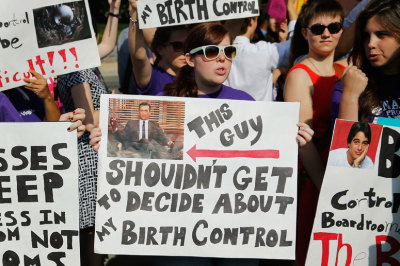Supreme Court Condones 'Vicious Anti-Christian' Law, Says David French on Washington Pharmacist Suit

Conservative columnist David French denounced the United States Supreme Court's recent decision to not grant a hearing for a suit against a Washington state law that compels pharmacies to provide abortion-inducing drugs despite any religious objections.
The high court refused to grant an appeal in the case of Stormans v. Wiesman, which involves Christian pharmacists suing Washington over a law mandating that pharmacies provide drugs like Plan B and Ella despite conscience objections.
In a Tuesday National Review column, French called the Supreme Court "pitiful" for refusing to hear Stormans' appeal.
"... the fact that the Stormans refuse to sell abortifacients didn't cause a single person to lose access to the drug of their choice," wrote French.
"But to anti-Christian bigots, it is intolerable that Christian professionals exist unless they bow the knee to the Baal of the sexual revolution, so Washington's governor took action — demanding that the Washington State Board of Pharmacy issue regulations that required pharmacists to issue abortifacients regardless of religious or moral objections.
The Alliance Defending Freedom, a law firm that represented the Stormans, also expressed disappointment at the denial.

ADF Senior Counsel Kristen Waggoner also pointed out in a statement Tuesday that the Supreme Court upheld a law that singles out people of faith to deny their freedom.
"Americans should be free to peacefully live and work consistent with their faith without fear of unjust punishment, and no one should be forced to participate in the taking of human life.
"We had hoped that the U.S. Supreme Court would take this opportunity to reaffirm these long-held principles. The state of Washington allows pharmacists to refer customers for just about any reason — except reasons of conscience," stated Waggoner.
"Singling out people of faith and denying them the same freedom to refer is a violation of federal law. All 49 other states allow conscience-based referrals, which are fully supported by the American Pharmacists Association, the Washington Pharmacy Association, and more than 34 other pharmacy associations. Not one customer in Washington has been denied timely access to any drug due to a religious objection."
In 2007, the Washington Pharmacy Quality Assurance Commission unanimously adopted two administrative rules, the "Pharmacist Responsibility Rule" and the "Delivery Rule."
The "Responsibility Rule" said that while a pharmacy cannot refuse to provide "lawful prescriptions," there could be a religious exemption for pharmacists.
By contrast, the "Delivery Rule" lacked any such exemption for religious objections to providing "lawful prescriptions," including emergency contraceptives that may be abortion-inducing.
Ralph's Thriftway, which is owned by the Stormans, Inc., and two pharmacists, filed a lawsuit against the Commission in 2007 arguing that the rules violated their religious freedom.
U.S. District Judge Ronald Leighton granted the plaintiffs a preliminary injunction from the new rules which was later overruled by the Ninth Circuit Court of Appeals.
In February of 2012 Leighton ruled in favor of the pharmacists, arguing that the Commission's rules were "in practice unconstitutional" because a pharmacist is denied the opportunity to refer customers to another pharmacy, which means pharmacies would have to staff at least two pharmacists at all times to comply with the rules. Given cost constraints, the religious objector would likely lose their job.
In July of last year a three-judge panel of the Ninth Circuit overturned the lower court decision, arguing that the plaintiffs must provide the contraceptive services.
In January Stormans filed an appeal with the Supreme Court. Several amicus briefs were filed on their behalf, including one from over 4,000 healthcare professionals and another by 43 members of Congress.
In an announcement made Tuesday, the Supreme Court refused to grant a hearing on the case. While the majority did not offer comment for their reasons, Justice Samuel Alito authored a dissenting opinion joined by Chief Justice John Roberts and Justice Clarence Thomas.
"At issue are Washington State regulations that are likely to make a pharmacist unemployable if he or she objects on religious grounds to dispensing certain prescription medications," argued Justice Alito.
"Yet the Ninth Circuit held that the regulations do not violate the First Amendment, and this Court does not deem the case worthy of our time. If this is a sign of how religious liberty claims will be treated in the years ahead, those who value religious freedom have cause for great concern."
While French, ADF and Alito took issue with the decision, others including the Washington, DC-based Americans United for Separation of Church and State applauded the Court's action.
"The Supreme Court did the right thing by refusing to hear this case," stated Americans United's executive director the Reverend Barry W. Lynn, whose organization filed an amicus brief on behalf of Washington state.
"A pharmacist's personal religious beliefs must not be allowed to get between a patient and her doctor."




























